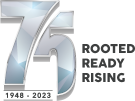We are #Openforlearning
We offer globally-accredited degrees and courses taught by the region’s finest academics in world-class facilities.
Our aim is to provide you with a learning environment in which you can strengthen your skills as a self-directed learner and enhance your capacity to interact and collaborate with your peers, share experiences, challenge accepted ideas and build new knowledge.
Introduction
The programme will offer basics for coaches in Sports in general. Functional Anatomy and relevant Physiology for coaches will form the basis for their learning of more applied aspects like Sports Nutrition and Biomechanics. Origins and Growth of Modern Sport 1850 - 1946 and Sports Ethics should root them in the local culture and practice. Communication in the Workplace and Statistics should empower them to deal with players and the media. All of this will be done while instilling Principles of Coaching in general, with options to focus on Sports of their interest later on. At the end of the course, the candidate should be a well-rounded coach, able to formulate coaching plans based on sound scientific principles and modern knowledge. They should be able to use their creativity to deliver within the norms of Caribbean practice, cognizant of the importance of Sport to the region. They will be equipped to either enter the field of Sport Coaching, or further their studies at a Post Graduate level.
Who is this programme for?
The BSc in Sport Coaching programme seeks to target persons who are currently working in any of the numerous areas in coaching, non-governmental organizations, educational institutions, private entities and other individuals, including school leavers with an interest in the field.
Duration and Award of Programme
The programme will be offered over 4 years (part-time).
Delivery Mode
(Blended) Online theory with coaching practicums and lab components
Programme Structure
This four-year part-time programme of study consists of a total of 93 credits. Level 1 consists of thirty (30) credits, Level 2 consists of thirty (30) credits, and Level 3 consists of thirty-three (33) credits, 663 clock hours.
The programme consists of thirty-one (31) courses, which represent four main areas of study. These areas are, 1. Basic Sciences; 2. Coaching specific; 3. Professional, and 4. General Education. Courses are offered over six semesters, each containing thirteen teaching weeks. SPKN 2107 - Sport and Exercise Biomechanics and SPKN 3102 - Applied Biomechanics in Sport and Exercise both contain laboratory components which will be delivered by face-to-face sessions over a one week period at laboratories located at the Cave Hill Academy of Sport in Barbados. Students will be required to travel to Barbados to complete this one week face to face component. Practicum experiences exist in each year and these are completed over six weeks. Students will practice coaching during these sessions with supervision being provided by certified coaches in different sports.
When will the programme start?
The programme starts in August of the academic year.
Entry Requirements
All persons entering the B.Sc. Sport Coaching programme must have a minimum of five passes thus:
1. Mathematics and English Language from either or both of the following examination bodies:
- General Certificate of Education, Ordinary level (GCE O’Level) Grades A, B or C
- Caribbean Secondary Education Certificate (CSEC) General Proficiency Level 1 or 2, General Proficiency Level 3 after 1998.
2. Two subjects from either or both of the following examination bodies.
- General Certificate of Education, Advanced Level (GCE A’ Level) Grades A, B, C, D, or E.
- Caribbean Advanced Proficiency Examination (CAPE) Units 1 & 2 of each course. Grades 1- 5
Candidates with qualifications other than the ones specified will be assessed on a case by case basis.
Academic Preparation
Applicants seeking entry into the programme must, prior to enrolment, be able to use the computer for word processing, to store and retrieve information, as a communication device (e.g., for emailing), and to surf the Web. Applicants must also be able to read and write at a level necessary to complete a UWI Open Campus application form and to participate successfully in the programme.
Course of Study
This course introduces students to the art and science of statistics. Topics covered are: the collection and compilation of data, descriptive statistics, probability distributions, estimation, hypothesis testing and simple regression and correlation. Teaching is accompanied by computer applications using MINITAB software.
This is a cross-disciplinary course. It is designed to provide a firm base for Communication courses and for courses in English for Special Purposes linked with specific disciplines. It helps students to achieve the level of competence in written language that is required of the university student in undergraduate programmes. Course content includes Language in the Caribbean, Summarizing, the Formal Essay and Methods of Organising Information.
This course is designed to develop an awareness of the main process of cultural development in Caribbean societies, highlighting the factors, the problematic and the creative output that have fed the emergence of Caribbean identities. It also develops a perception of the Caribbean as wider than island nations or linguistic blocs and stimulates students’ interest in, and commitment to Caribbean civilization and to further their self-determination.








